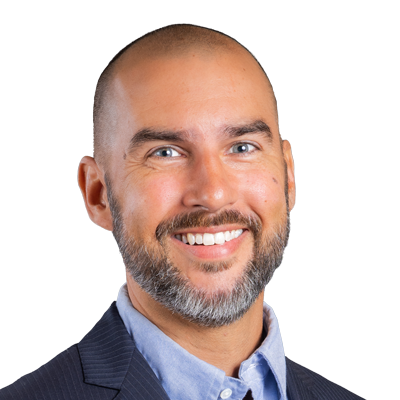 |
| By Nilus Mattive |
“Just because you’re paranoid, doesn’t mean they aren’t after you.”
That’s a famous quote from Joseph Heller’s satirical novel, Catch-22, and it’s worth keeping in mind whenever the subject of governmental overreach comes up.
For example, the FedNow program, which recently rolled out officially.
On its surface, it’s simply a government-run payment processing system designed to make financial transactions faster and more efficient. According to recent articles from PolitiFact and The Charlotte Observer, FedNow is nothing to worry about:
“Even if federal leaders decided they wanted to block Americans’ everyday purchases this way — and there’s no indication they do — the laws currently on the books would not allow it.”
Really? Let’s start with the idea that the government doesn’t have any interest in monitoring what everyday citizens are doing. The reality is that this type of thing has already happened in America.
The federal government has illegally spied on millions of American citizens who were never suspected of any wrongdoing. That was revealed in a slide from a top-secret PowerPoint presentation that the NSA and the FBI used to train their agents.
It showed the so-called “providers” being companies typically in communications and Big Tech that provided American citizens’ confidential data to the government.
When the spying — called the President’s Surveillance Program … or “The Program” — was first rolled out by the NSA under the George W. Bush administration in the wake of Sept. 11, it included big telecom companies like AT&T (T) and Sprint providing user data to government officials.
According to an investigation by USA Today, this included “customers' names, street addresses and other personal information.” In addition, the government received “detailed records of calls they made — across town or across the country — to family members, co-workers, business contacts and others.”
Under the Obama administration, the NSA’s domestic spying efforts expanded to include Big Tech providers like Microsoft (MSFT), Alphabet (GOOGL), Yahoo!, Meta Platforms (META), Skype, AOL, Apple (AAPL) and others.
Government agents gained access to users’ private activities and could be spied on at any time, whether live or recorded. Things like chats, videos, photos, stored data, files that had been sent, websites that had been visited and even details about a person’s social networks.
So, it’s evident that it could happen under any government, left, right or in-between and a program like FedNow would make it …
Extremely Easy to Apply the Same
Type of Surveillance to Our Financial Lives
What about the idea that the government would never dare seize control over your money? Well, again, they have already seized control over the assets of millions of private U.S. citizens ... many of whom never did anything wrong.
Sure, in a court of law, people are presumed innocent until proven guilty. But when the government confiscates your money or any other asset, you’re presumed guilty until you can prove your innocence.
How often does it happen? According to the Institute for Justice, it’s a massive nationwide problem. Since 2000, they’ve documented 17 million cases of confiscation by 45 states, the District of Columbia and the federal government.
Investigative reporters at The Washington Post looked into this, finding that just in one recent year, the U.S. Justice Department and the U.S. Treasury received $5 billion in assets confiscated from private citizens. But only $3.5 billion was stolen money. The rest was taken away from innocent Americans. Most of those cases involved hard cash or other physical assets.
The new FedNow program opens up the potential for the government to cast a far wider, far more “efficient” net … essentially covering an entire world of digital financial transactions. All they’d have to do is declare some type of new emergency.

Indeed, there are plenty of other examples of government officials tossing personal freedoms aside under the auspice of emergencies. This might be a controversial example but consider a famous case from New Orleans during the Hurricane Katrina disaster back in 2005. Shortly after the storm hit, the city’s police chief made the following announcement:
“No one will be able to be armed. Guns will be taken. Only law enforcement will be allowed to have guns."
He then instructed police officers — as well as the National Guard — to begin seizing firearms throughout the city, even if those guns were lawfully owned. All told, thousands of weapons were confiscated at a time when their rightful owners needed them the most. The seizures only stopped after a legal injunction was awarded through the court system. And weapons were only returned to their lawful owners after a subsequent lawsuit.
Since then, a new federal law has been put on the books to explicitly prevent this type of thing from happening again. But it’s a reminder of how authorities can blatantly ignore fundamental liberties once some type of emergency is declared.
Heck, consider what happened during World War II, when roughly 80,000 full-fledged, U.S.-born American citizens were rounded up and put into camps simply because they had Japanese ancestry!
The point is simple. Governments — including Uncle Sam — have a long history of bending the rules as they see fit, particularly during times of stress. Meanwhile, rapid technological advancements are giving authorities greater powers of surveillance and control than they’ve ever had before … many that can be instituted with the push of a button.
And lately we’ve seen nearly constant national emergencies, a political environment that’s as polarized as it’s ever been and Uncle Sam’s finances hitting new all-time lows.
So, it’s perfectly reasonable to imagine a scenario where a new program like FedNow could be subject to future abuse by whoever’s in charge at any given time.
This is another one of the many reasons I’ve been talking a lot about alternative assets and strategies, and why I am currently exploring more advanced ways for you to gain greater financial flexibility and freedom going forward.
Best,
Nilus
P.S. If you want to know how truly knife-edge-balanced the financial system is, be sure to check out my colleague Sean Brodrick’s newest presentation on why Elon Musk’s next tweet could shock the world by clicking here.

